Filter by
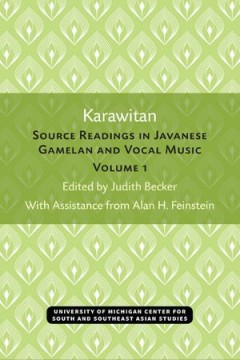
Karawitan, Volume 1: Source Readings in Javanese Gamelan and Vocal Music
The twentieth century has spawned a great interest in Indonesian music, and now books, articles, and manuscripts can be found that expound exclusively about karawitan (the combined vocal and instrumental music of the gamelan). Scholar Judith Becker has culled several key sources on karawitan into three volumes and has translated them for the benefit of the Western student of the gamelan traditi…
- Edition
- -
- ISBN/ISSN
- 9780472901647
- Collation
- -
- Series Title
- -
- Call Number
- 780

African Classical Ensemble Music: Book 1
The study of African music must be grounded in indigenous African knowledge systems, thus making it truly representative of indigenous Africa’s intellectual history. The African Classical Ensemble Music: Theory and Drum-based Concert Series is intended to empower literacy-driven ensemble creativity which, in turn, advances the philosophical, theoretical, medical and humanizing imperatives of …
- Edition
- -
- ISBN/ISSN
- 9781920355005
- Collation
- -
- Series Title
- -
- Call Number
- 780
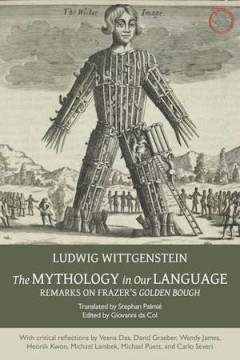
Essays on Music and History in Africa
This classic ethnomusicological survey provides as a valuable guide to African music. The essays review a broad swath of genres and topics, including court songs and music history, musical instruments in different traditions, and the connection between Islam and African music. Contributors are Lois Ann Anderson, John Blacking, Philip J. C. Dark, David M. Dixon, Akin Euba, John D. Fage, Matthew …
- Edition
- -
- ISBN/ISSN
- 9780810139602
- Collation
- -
- Series Title
- -
- Call Number
- 780

Glossary of Hausa Music and Its Social Contexts
The richness, variety, and complexity of the culture of the Hausa city-states are illustrated in microcosm in Glossary of Hausa Music and Its Social Contexts, in which several hundred Hausa terms for music are collected. David W. Ames and Anthony V. King concentrate on the kingdoms of Zaria and Katsina, but include historically noteworthy terms from other areas. This compilation not only presen…
- Edition
- -
- ISBN/ISSN
- 9780810138193
- Collation
- -
- Series Title
- -
- Call Number
- 780

African Music on LP: An Annotated Discography
Containing details of 390 L.P. and E.P. recordings, African Music on LP: An Annotated Discography contributed to the scholarship of African music at a time when very little had been written. Organized by record label and arranged in alphabetical order, Allen P. Merriam assesses the stylistic characteristics of each recording, providing new insights on the subject and the recording industry at t…
- Edition
- -
- ISBN/ISSN
- 9780810138599
- Collation
- -
- Series Title
- -
- Call Number
- 780
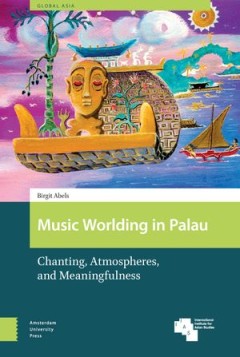
Music Worlding in Palau: Chanting, Atmospheres, and Meaningfulness
Music Worlding in Palau: Chanting, Atmospheres, and Meaningfulness is a detailed study of the performing arts in Palau, Micronesia as holistic techniques enabling the experiential corporeality of music’s meaningfulness—that distinctly musical way of making sense of the world with which the felt body immediately resonates but which, to a significant extent, escapes interpretive techniques. D…
- Edition
- -
- ISBN/ISSN
- 9789048550517
- Collation
- -
- Series Title
- -
- Call Number
- 780 ABE m
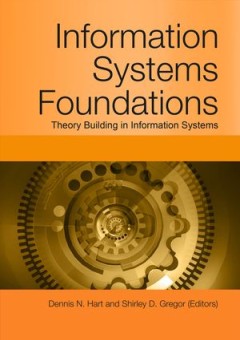
Yosano Akiko and The Tale of Genji
Yosano Akiko (1878–1942) has long been recognized as one of the most important literary figures of prewar Japan. Her renown derives principally from the passion of her early poetry and from her contributions to 20th-century debates about women. This emphasis obscures a major part of her career, which was devoted to work on the Japanese classics and, in particular, the great Heian period text …
- Edition
- -
- ISBN/ISSN
- 9780472902002
- Collation
- -
- Series Title
- -
- Call Number
- -
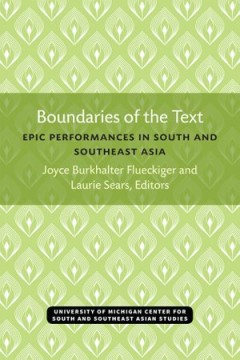
Boundaries of the Text: Epic Performances in South and Southeast Asia
When the Mahabharata and Ramayana are performed in South and Southeast Asia, audiences may witness a variety of styles. A single performer may deliver a two-hour recitation, women may meet in informal singing groups, shadow puppets may host an all-night play, or professional theaters may put on productions lasting thirty nights. Performances often celebrate ritual passages: births, deaths, marr…
- Edition
- -
- ISBN/ISSN
- 9780472901715
- Collation
- -
- Series Title
- -
- Call Number
- 791 BOU b
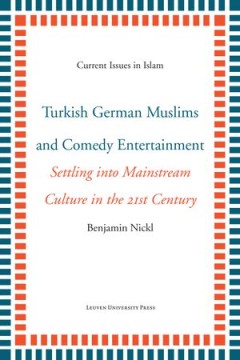
Turkish German Muslims and Comedy Entertainment: Settling into Mainstream Cul…
Turkish German comedy culture and the lived realities of Turkish Muslims in Germany Comedy entertainment is a powerful arena for serious public engagement with questions of German national identity and Turkish German migration. The German majority society and its largest labour migrant community have been asking for decades what it means to be German and what it means for Turkish Germans, Mu…
- Edition
- -
- ISBN/ISSN
- 9789461663412
- Collation
- -
- Series Title
- -
- Call Number
- 792.2 NIC t
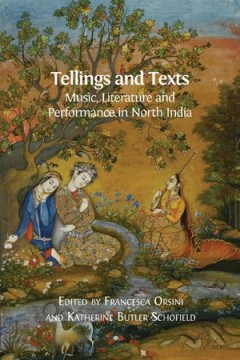
Tellings and Texts: Music, Literature and Performance in North India
Examining materials from early modern and contemporary North India and Pakistan, Tellings and Textsbrings together seventeen first-rate papers on the relations between written and oral texts, their performance, and the musical traditions these performances have entailed. The contributions from some of the best scholars in the field cover a wide range of literary genres and social and cultural c…
- Edition
- -
- ISBN/ISSN
- 9781783741045
- Collation
- -
- Series Title
- -
- Call Number
- 780
 Computer Science, Information & General Works
Computer Science, Information & General Works  Philosophy & Psychology
Philosophy & Psychology  Religion
Religion  Social Sciences
Social Sciences  Language
Language  Pure Science
Pure Science  Applied Sciences
Applied Sciences  Art & Recreation
Art & Recreation  Literature
Literature  History & Geography
History & Geography